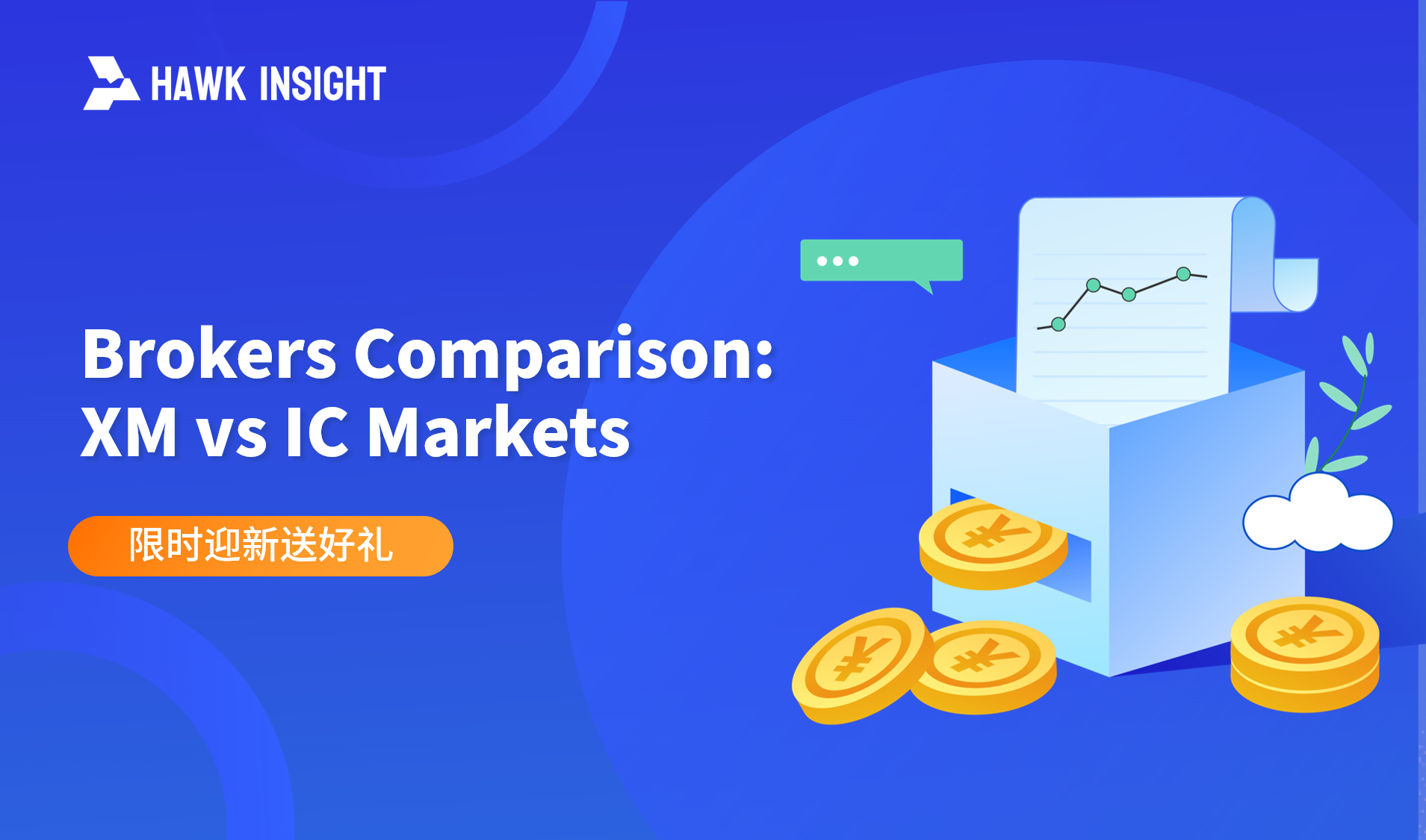Brokers Comparison: XM vs IC Markets
This article will provide reference for investors to choose trading platforms by comparing the core advantages and disadvantages of XM and IC Markets.

In the field of foreign exchange trading, XM and IC Markets are the two major brokers that have attracted much attention.This article will compare the core advantages and disadvantages of XM and IC Markets to provide reference for investors to choose trading platforms, including trading products, fees, and their respective applicable groups.
Overview
Founded in 2009, XM offers more than 1,000 asset classes, has more than 10 offices around the world, and is regulated by multiple regulators, including the UK Financial Conduct Authority FCA and the Australia Securities and Investments Commission ASIC.
IC Markets is headquartered in Australia and was established in 2007. It is known for providing a trading environment with low spreads and fast execution. It is mainly regulated by ASIC and has been recognized many times in the industry.
XM is widely regarded for its rich trading products and global footprint, while IC Markets is supported by low spreads and high-frequency trading, making it particularly suitable for algorithmic traders.
Trading Instruments
In terms of trading products, XM offers more than 1,000 products, including foreign exchange, stock indexes, stocks, precious metals, energy and commodities, etc., while IC Markets is mainly concentrated in the foreign exchange market, covering stock indexes, commodities, futures and cryptocurrencies.For investors with broader product needs, XM has clear advantages, while IC Markets focuses more on foreign exchange and futures and is suitable for professional foreign exchange traders.
For foreign exchange trading, XM does not charge commissions and has low spreads, with EUR/USD spreads as low as 0.1 points.IC Markets offers standard accounts and tight ECN accounts, which have lower spreads but require a certain commission, making them more suitable for experienced algorithmic traders.
Commissions & Fees
XM adopts a zero-commission model and mainly earns profits through spreads, while IC Markets has two fee structures: standard account and ECN account, depending on account type.XM's trading fees are relatively average and have no additional fees, making it suitable for investors who focus on low costs, while IC Markets attracts a large number of professional traders due to its low spreads and support for advanced trading tools.
Investors should consider cost-effectiveness when selecting a platform based on their own trading style and amount of funds. For example, high-frequency traders may prefer IC Markets, while XM's zero-commission structure is more attractive to investors who want to reduce costs.
Pros & Cons
Choosing the right Forex broker is crucial.XM has the advantage of having no additional fees, which saves investors costs in long-term trading;IC Markets meets the needs of different trading strategies through diversified account structures.When selecting a platform, investors need to comprehensively consider the advantages and disadvantages of each platform.
In terms of trading product selection, XM offers far more product types than IC Markets, which has significant advantages in foreign exchange trading.For professional investors who use algorithms to trade, IC Markets 'low-spread accounts are more attractive; while XM's low-spread accounts and no additional fees make it suitable for most traders.
·Original
Disclaimer: The views in this article are from the original Creator and do not represent the views or position of Hawk Insight. The content of the article is for reference, communication and learning only, and does not constitute investment advice. If it involves copyright issues, please contact us for deletion.